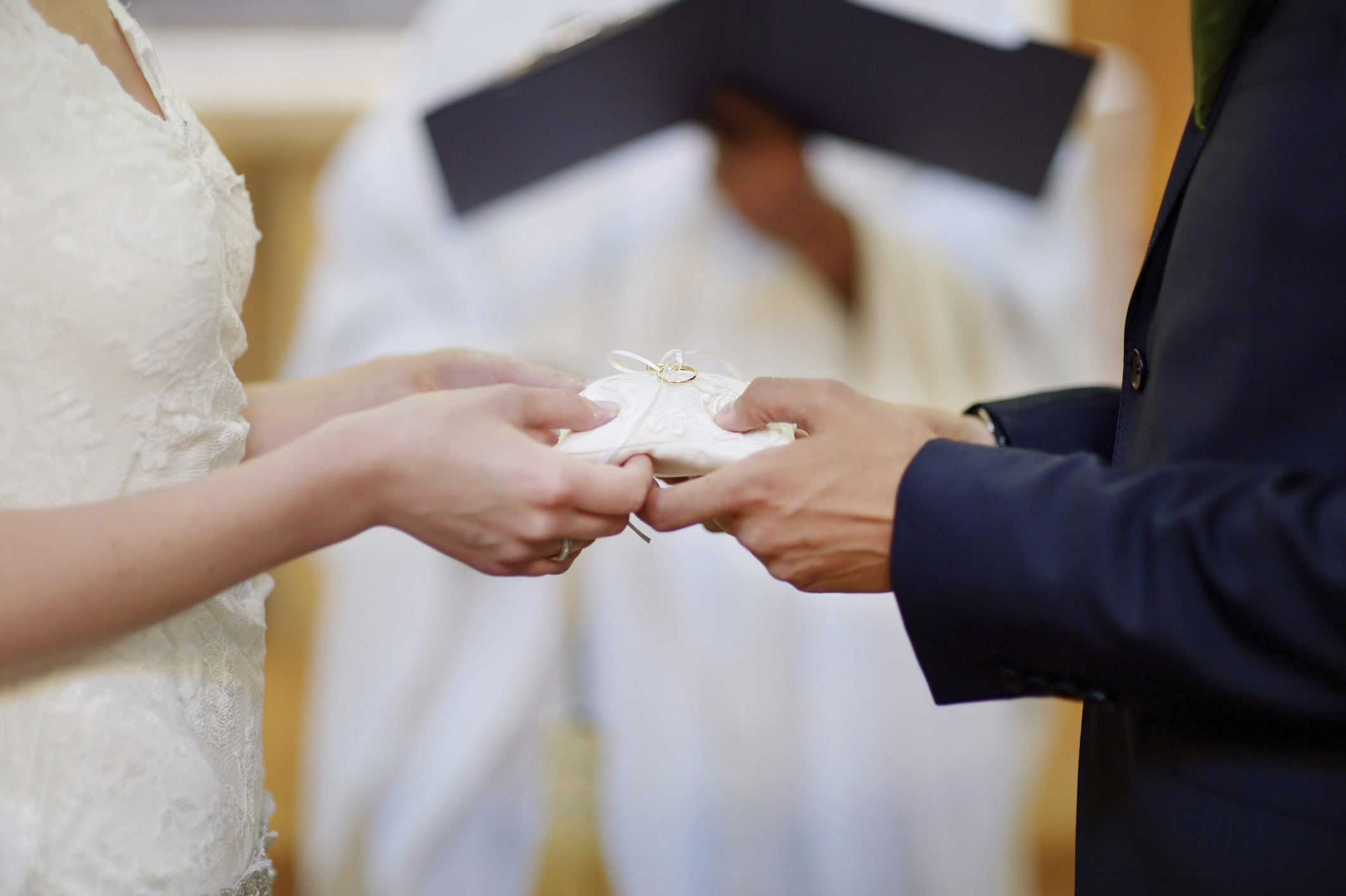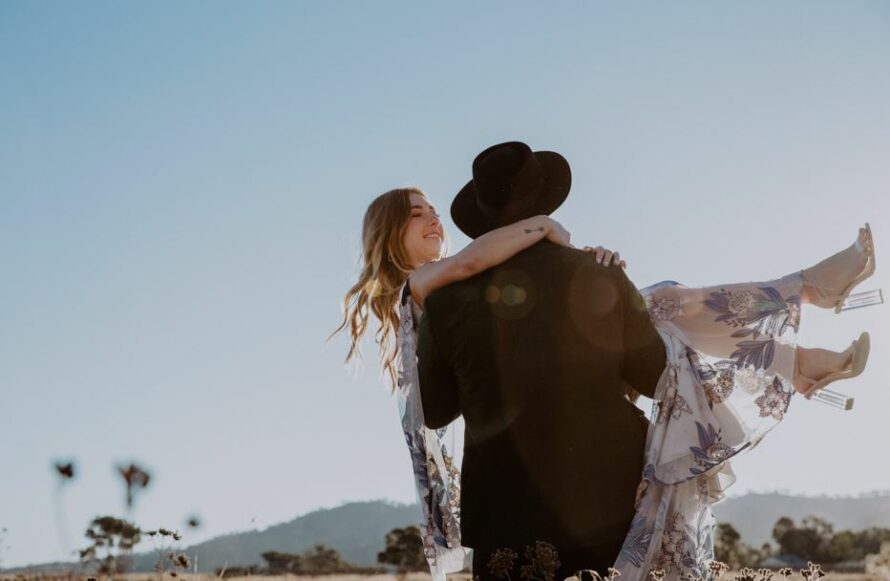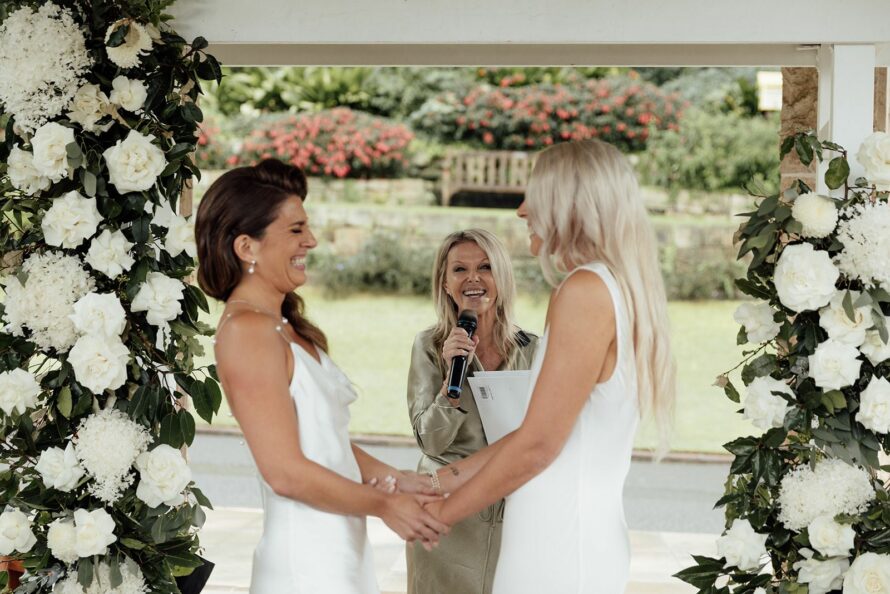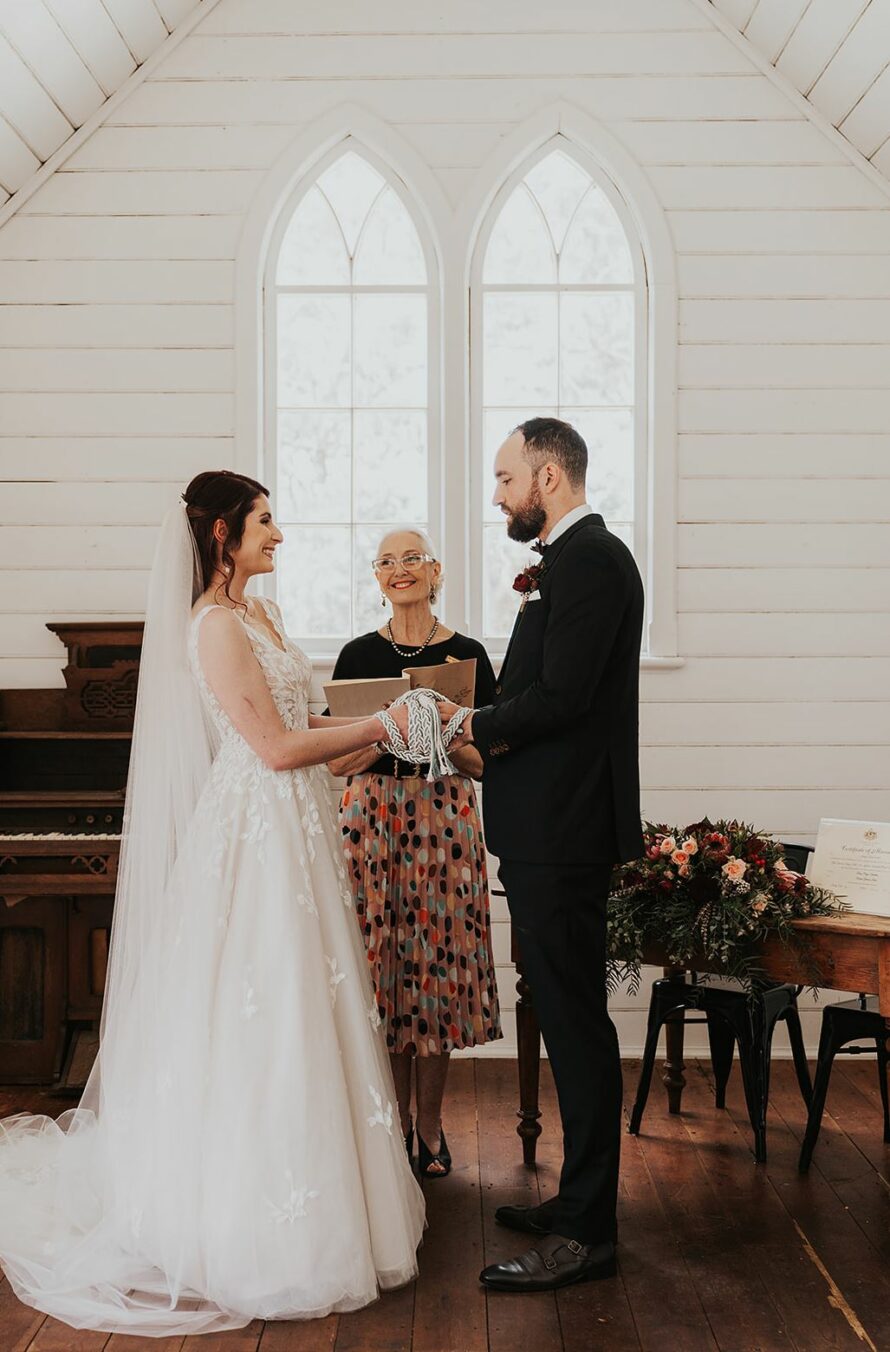It is a personal choice for individual couples whether they have a religious or non religious ceremony. In making this choice you should consider you own beliefs, those of both families and once again your dream wedding.
Religious ceremonies vary greatly from one religion to another. If you wish to have a religious wedding you need to speak to the clergy person well in advance to book and to find out any pre marital requirements. Choosing to break tradition and have a civil ceremony does not mean a quick, boring ceremony, contrary to popular belief. You can have all the trimmings of a traditional ceremony, without a religious officient if that is what you desire. If you wish to have your ceremony anywhere other than a house of worship you will need to choose a civil celebrant, as a clergy person will not marry elsewhere.
Whether you choose a clergy person or a civil celebrant, they have complete control of the events on the day. They are experts on wedding procedures but you need to be sure that they know exactly what you what, and that all details are clear. Following is a list of items that need to be discussed.
- The date and time of the ceremony
- The date and time of the rehearsal
- Seating capacity
- Fees for church or other house of worship staff
- Rules of dress
- Rules of church or other house of worship
- Rules regarding decorations
- Rules of recording the ceremony – photos and video
- Rules of music
- Candles and candle holders
- Flowers
- Aisle carpet, ribbons and decorations
- Wedding ceremony positions
- Early communion, if appropriate
- Baptismal and confirmation certificates, if appropriate
- Dates for counselling, if appropriate
- Wedding ceremony procedure
- Double ring ceremony
- The Clergy person’s fees



